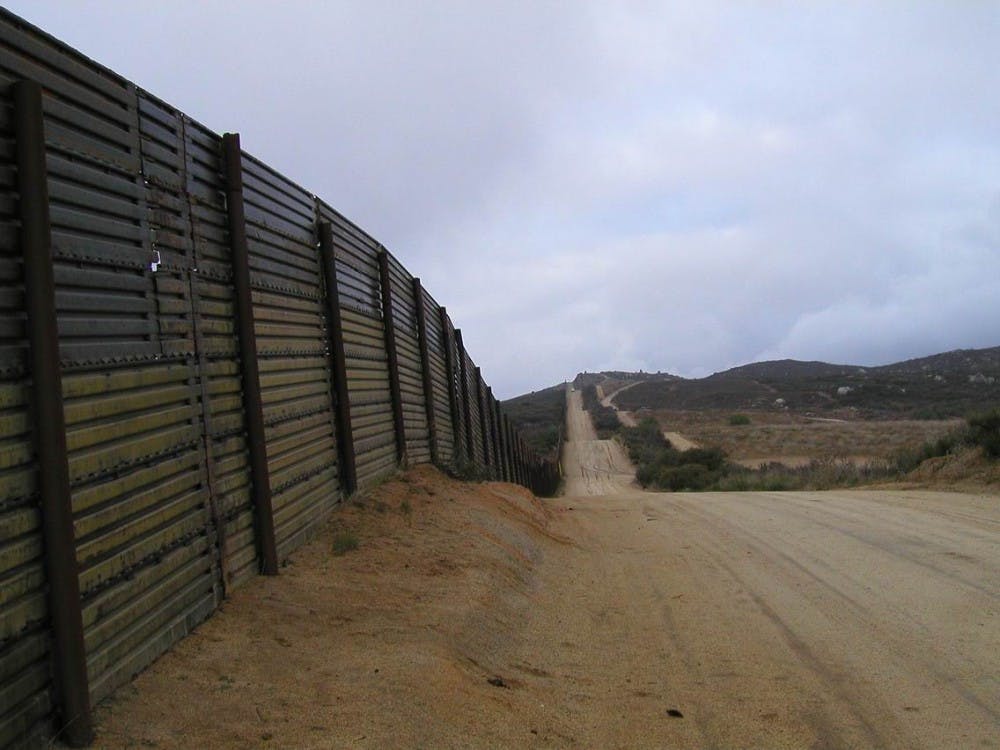
In early October, Istmo y Vos, Penn’s only Central American cultural group, showcased “La Bestia,” a documentary highlighting the plightful circumstances many Central American migrants face as they travel through Mexico to the Southwest United States' border. At the time, we did not realize how relevant this documentary would become when a few days later, a caravan of thousands of migrants formed in Honduras and began its march to the American border.
The caravan, in particular, is not exceptional — hundreds of people cross the U.S.-Mexico border every day, and multiple caravans have been organized before. What is most striking is the strenuous coordination effort, the publicity the event has received, and the story that has subsequently developed. It is estimated, according to the United Nations Refugee Agency, that approximately 7,000 people are currently traveling with the caravan, which is comprised of multiple groups. Departing from San Pedro Sula, Honduras in early October, the caravan is made up of people from Honduras, Guatemala, El Salvador, and Nicaragua.
The Northern Triangle — Guatemala, El Salvador, and Honduras — is known as one of the most dangerous and unstable regions in the world with some of the highest rates in murder, gang violence, and corruption. Central America is plagued with poverty, forcing many citizens of these countries to be pushed against a wall, traveling 2,000 miles on foot, crossing hostile territory to gain entrance into the United States with the hope for a better life. Furthermore, corruption is rampant in Central America, and many government officials have been exposed for having relations with drug cartels, money laundering, and fraud. Many of the people in the Northern Triangle cite a lack of opportunity, poverty, danger, and corruption as reasons to seek a better life in the United States.
Widespread instability of the region did not develop overnight; it has been decades in the making, with special thanks to the United States. U.S. interventionism is almost as old as the country itself, and its role in Central America’s geopolitical sphere dates back to the 1950s, amplifying itself in the 1980s when many Northern Triangle countries experienced civil wars. Now, the cycle is repeating itself and the United States’ hand in the destabilization of the region — over 30 years later — casts a shadow over the governments currently in place. As was the case in the 1980s, there is now a resurgence of migrants seeking opportunity in the United States.
The migrant caravan has several implications. First, instability, violence, and corruption persist in Central America causing thousands to seek refuge in the United States every year. Second, the inability of political branches to reach comprehensive, consistent, and humane immigration reform has severely impacted generations of Central American migrants. Lastly, despite decades of trauma afflicting Central American migrants, they continue to chase the beacon of hope the United States represents to thousands of Central Americans, despite its flawed system.
The United States is in desperate need of immigration reform. At the root of this issue is the failure of Congress to deliver comprehensive immigration reform and, consequently, the extensive presidential power over immigration policy that has proliferated in its absence. In the void of congressional action, and with an influx of Central American migrants entering the United States, President Obama issued executive actions: Deferred Action for Childhood Arrivals and Deferred Action for Parents of Americans. Such policies, while very agreeable, were unilateral in nature and stood on thin legal ice. This allowed for a complete reversal of policy under the Trump administration — the issuance of a travel ban, legal limbo for DACA and DAPA, the end of Temporary Protected Status, family separation and detainment, and most recently a suspension of asylum for migrants traveling with the caravan.
The courts have oscillated in their understanding of presidential power in this respect, failing to provide a consistent interpretation. Congress, likewise, has relinquished its prerogative over immigration law given its indifference in passing comprehensive immigration law reform and general deference to the presidency. While President Trump may, in the best case scenario, be an anomalous president, his actions concerning immigration policy highlight that the presidency has an undue amount of power over immigration policy that only further contributes to an ineffective and inequitable system of immigration. Families have been separated, refugees are detained indefinitely, and there seems to be no relief on the horizon.
The convergence between the timing of the caravan and the midterm elections has only served to politicize the caravan and detract from the real concern: a humanitarian crisis exists in Central America that the United States has long ignored at the cost of dealing with the influx of Central American migrants. As a Central American voice on campus, we feel we must impress the gravity of an issue that continues to affect our community. We aim to contribute to the Latinx discourse on campus, and we feel an obligation to begin a conversation about these recurring diasporic movements. These issues have existed for decades, and they are worsening with the current administration that has encouraged antiquated ideas of nationalism to justify discrimination. Immigrants are an integral part of what constitutes the United States and its history. It is our duty to stay informed about all sides of this narrative and stand up for what we believe is right to prevent injustices from taking place.
Istmo y Vos
Celeste Diaz, Aloma Lopez, Lucy Pérez Méndez, Kelly Lopez, Javier Aguilar, Lisa Romero, Joseph Padilla
The Daily Pennsylvanian is an independent, student-run newspaper. Please consider making a donation to support the coverage that shapes the University. Your generosity ensures a future of strong journalism at Penn.
Donate







